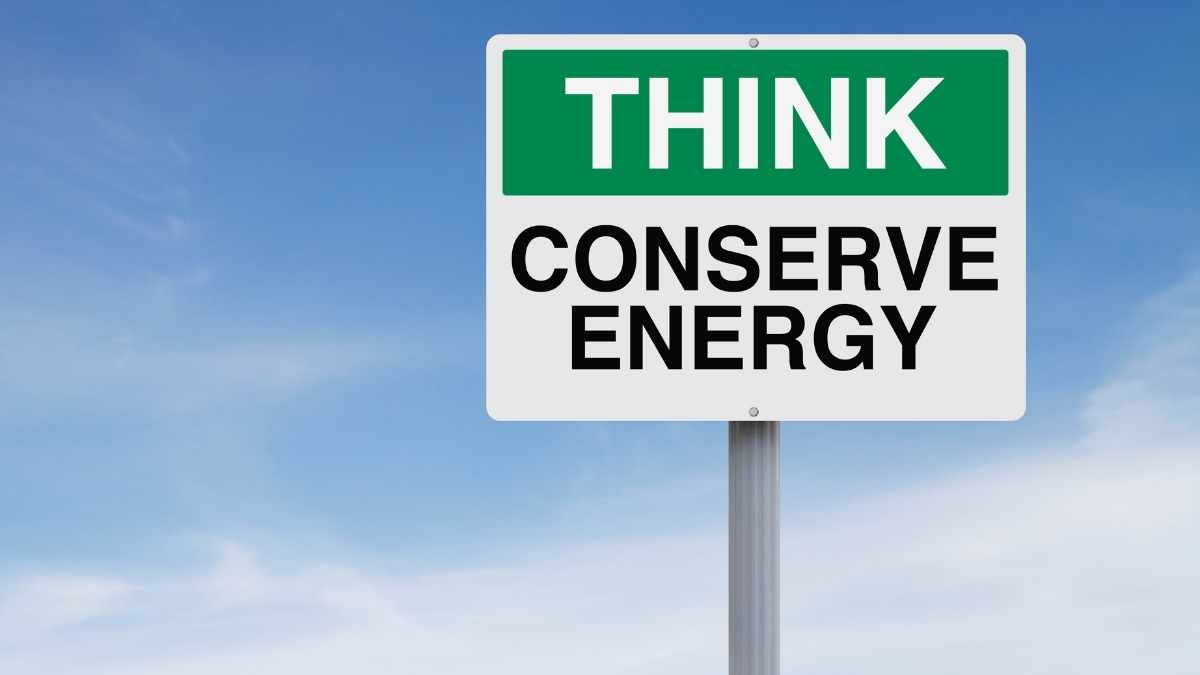Energy conservation will help the planet and your pocket too!
It’s a win-win situation for all.
It’s a no-brainer!
Saving energy at home should be at the forefront of everybody’s minds as the human race develops more and more energy-sapping gadgets.
Here is our ‘Conserve Energy At Home For Dummies’ guide!
Let’s get started.
What Is the Buzz About Energy Conservation?
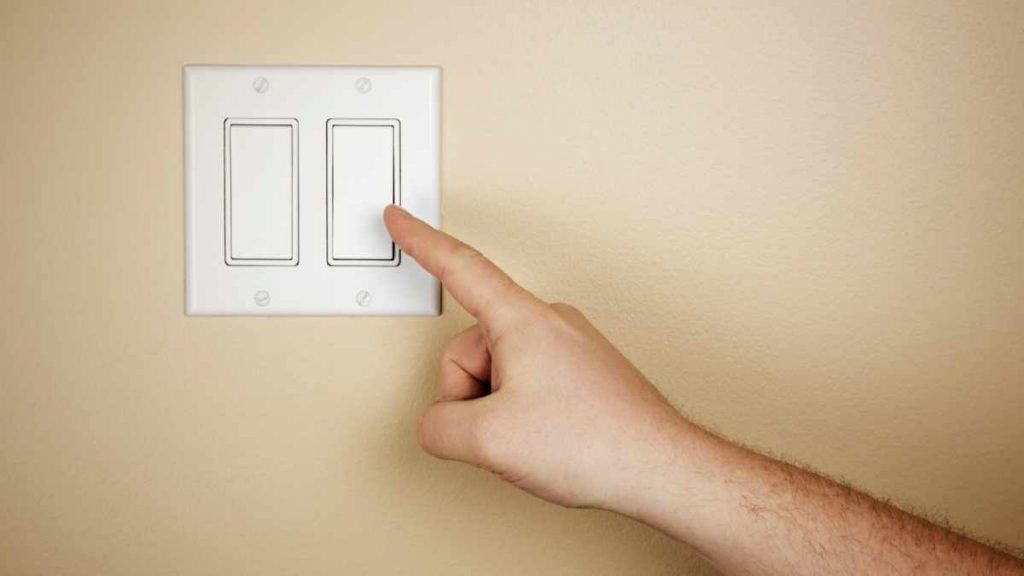
Conserving energy means using less energy to minimize environmental impact while lowering costs.
It might sound vague, but it means using less gas, electricity, or other forms of energy that negatively affect the environment.
-

Fashionably Green and On-The-Go
£16.50 Select options This product has multiple variants. The options may be chosen on the product page -
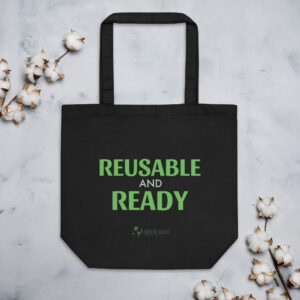
Reusable and Ready Eco-Friendly Tote Bag
£16.50 Add to cart
With several energy resources available, it is possible to conserve energy that will benefit everyone.
To help you, here are important ways to conserve energy at your home.
13 Ways To Save Energy At Home – A Dummies Guide
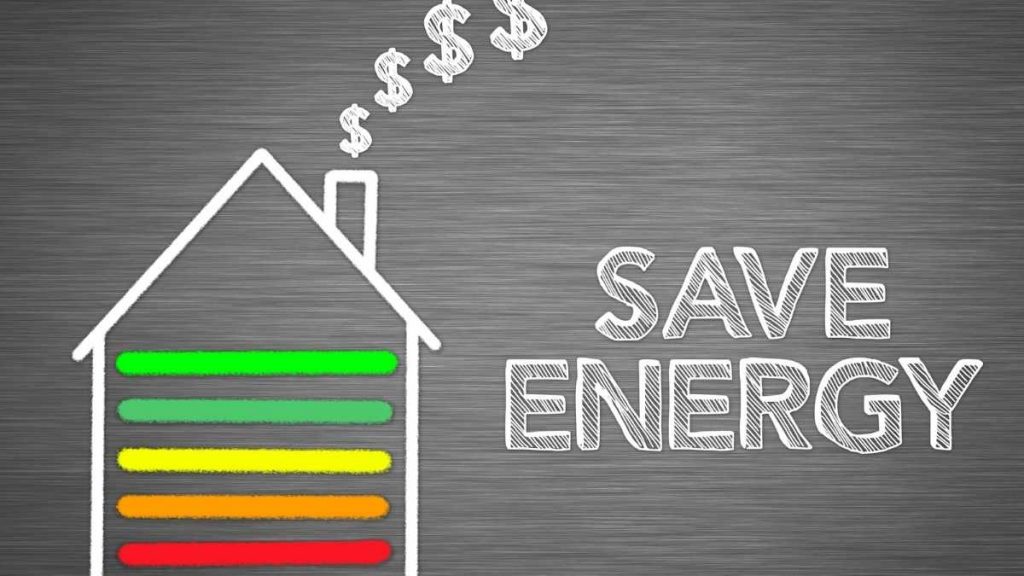
Adjust Your Daily Behaviors
While most ways of conserving energy might involve changing an item at home, everything begins with your daily behavior at home.
You don’t have to buy energy-efficient products even though it is essential.
You can conserve energy by turning items or appliances you are not using at the moment. In addition, you can perform tasks manually rather than using energy-intensive appliances.
A shift in your behavior will significantly impact your utility bill. It would involve turning the heater off or using the air conditioner less frequently during summer.
With this behavioral change, you can save yourself some money while helping to conserve the environment.
Turn Your Refrigerator Down
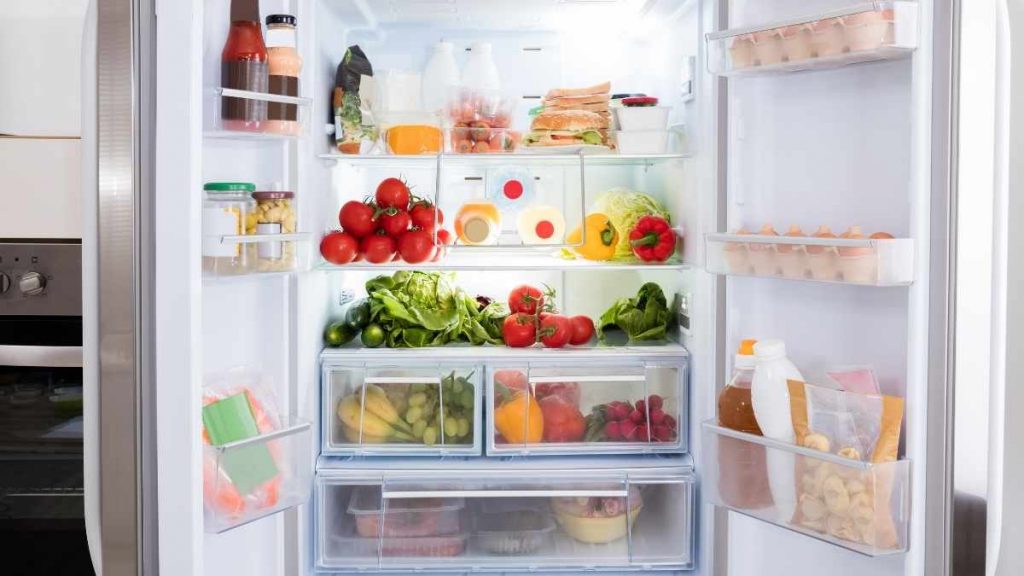
Your refrigerator consumes over 13.9% of your entire energy usage at home.
Therefore, to conserve energy, you should consider setting your fridge to below 40°F while your freezer should be at 0°F. These are temperatures defined by the FDA to ensure food is stored correctly.
With this, you consume less energy and reduce your energy cost.
Use Energy-Saving Light Bulbs
Traditional light bulbs consume more energy, which also affects the environment by generating more heat.
However, using an energy-efficient light bulb is a sure way of conserving energy.
You can opt to use light-emitting diode bulbs, compact fluorescent lights, and halogen incandescent bulbs to last longer than traditional bulbs.
Buy Energy-Efficient Appliances
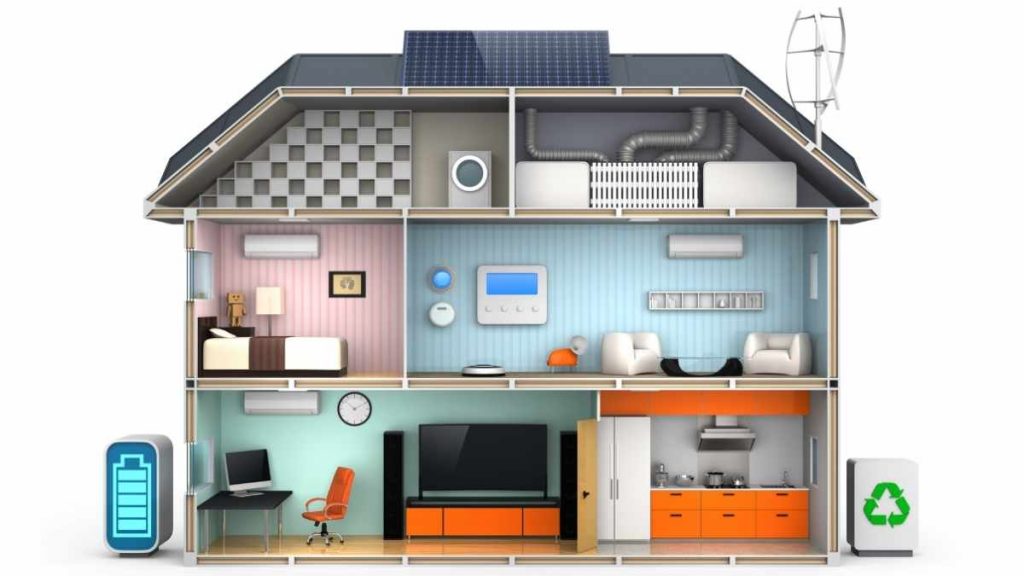
In most situations, your appliances at home use more than 13% of your overall energy.
When buying an appliance, your focus should be on the initial price plus the yearly operating cost.
While energy-efficient appliances have higher buying prices, their operational costs are lower than conventional models.
Therefore, before buying an energy-efficient appliance, look for the label that says ENERGY STAR. This label guarantees that your appliance will work efficiently without consuming much energy.
Keep Blinds and Windows Closed

During warmer periods, you should consider keeping your blind and windows closed during the day when you are not in.
The air conditioning stays indoors when you close your window, whereas the heat is kept out.
In addition, you can block your blinds from the sun gaining into your home during warm days.
Install a Smart or Programmable Thermostat
A smart or programmable thermostat can turn off or minimize heating and cooling while asleep.
If you can install a programmable thermostat, you eliminate wasteful energy use for cooling and heating without upgrading the HVAC system in your home.
In addition, a programmable thermostat has indicators that show when you need to replace your HVAC system or air filters.
With this, you can get an improved heating and cooling system.
Invest in Solar Energy
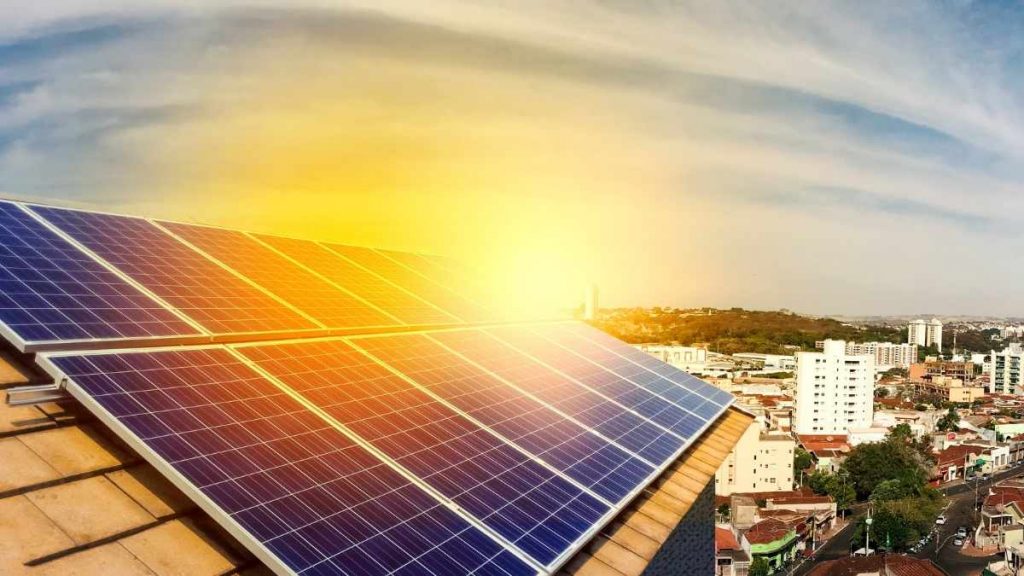
Another energy-efficient energy source is solar energy.
With solar energy, you save more money than you would have wasted on other energy sources.
It is a safer alternative to gas and electricity despite being cheaper and environmentally friendly.
Do Laundry Proficiently
Another efficient way of conserving energy is to do your laundry efficiently. Through this, you can save a lot of energy costs.
Alternatively, you can use the dry sensor feature that most newer dryers have.
You should perform minimal laundry jobs. Always ensure that you have near a max load instead of performing multiple small loads.
Also – you should wash your clothes at a lower temperature.
Ensure Your Home is Insulated
If your area is prone to frequent rainfall, your home can get damaged over time.
Therefore, you need to find any damage and seal it off. In addition, you can check for insulation in your attic, walls, and areas around your plumbing.
Endeavor to seal any damage to stop unwanted air from going out.
Drive Less and Walk More

Another efficient energy conservation technique you can use is to drive less and walk more often.
Not only does it minimize your carbon footprint, but it also helps keep you healthy.
Walking is a good form of exercise.
For instance, you can share a car with your colleagues. This will reduce your monthly gas fee.
Use Reusable Bottles
You can reuse bottles to conserve energy.
Using reusable bottles helps reduce waste in the environment. Therefore, opt to reuse bottles at home and school to conserve energy.
Unplug Chargers
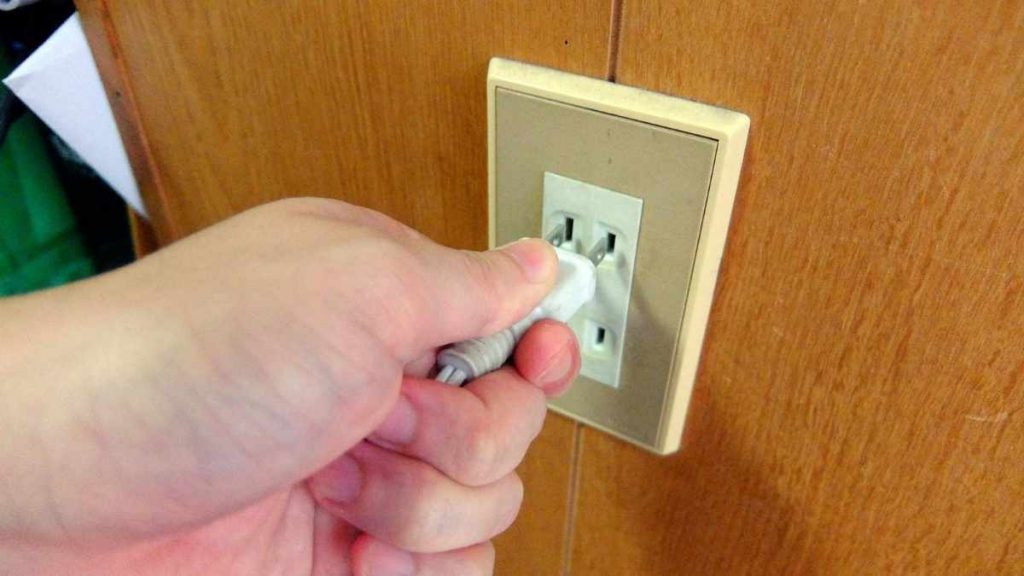
Most people easily ignore removing their chargers from the socket.
Unplugging your charger is an energy conservation technique that reduces energy costs. Once your battery gets full, unplug it.
Many chargers draw power when it is not charging a phone. It may look inconsequential, but a slight adjustment can improve the environment.
Motion Detectors
Installing a motion detector is another alternative that can help conserve energy.
You can then hook smart technology into the motion detectors. For instance, you should only switch lights on when they pick up any movement instead of always leaving them on.
There is no need to switch on or turn them off with motion detectors as they automatically work independently.
Importance of Energy Conservation to the Environment

Limiting your energy usage can impact the environment. The more you don’t use or conserve energy, the more problems you pose to the environment. Furthermore, you increase the threat of global warming.
Burning fossil fuels creates a lot of emissions. When several gases, such as carbon dioxide, are emitted into the atmosphere, it prevents the earth from maintaining a stable temperature.
The rising temperature of the earth, which we refer to as global warming, is a significant concern. Regrettably, it causes different side effects as climate changes over time.
You can observe these side effects through various chances in cold snaps, hurricanes, droughts, wildfires, and melting glaciers.
Nevertheless, you can help minimize gas emissions by reducing traditional energy usage.
By doing this, you
- Save coastal lives
- Improve air quality while reducing airborne allergens
- Protect reefs and improve water quality
- Lower impact on injuries, fatalities, and mental health due to severe weather.
Why Conserve Energy?
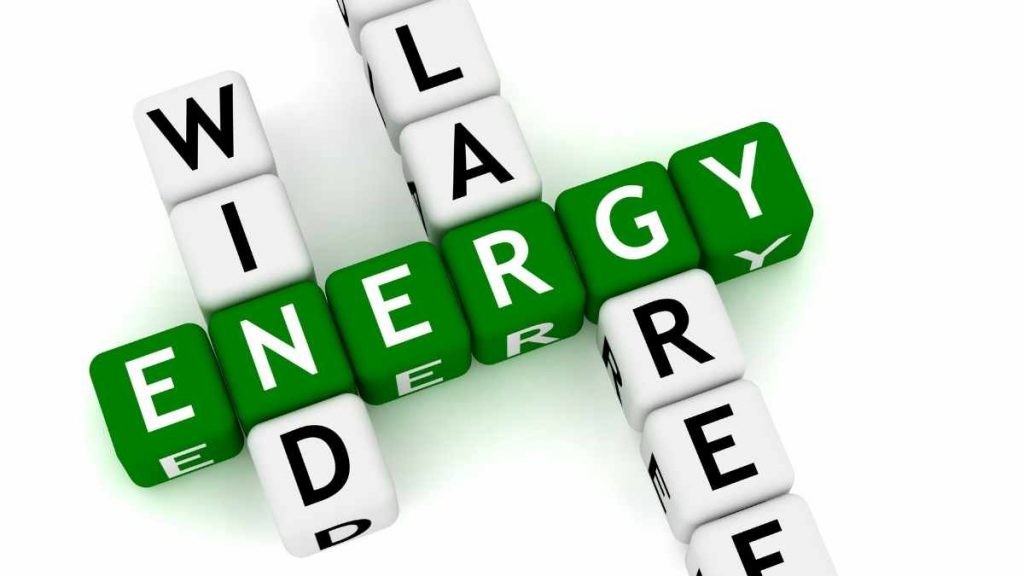
Going through the various things you can do to conserve energy, you might ask why conserve energy considering the cost.
Energy conservation is beneficial and crucial for several reasons. You can increase your property value, save costs, and protect the environment through these energy-saving measures.
These are just a few benefits you can get from conserving energy.
Notwithstanding the circumstances, taking these little steps to save energy will go a long way.
More importantly, it would help if you lived an energy-conscious lifestyle because that is where everything begins.
Conclusion
You have a role to play when it comes to energy conservation.
It begins with consciously switching your bulb off or opting for energy-efficient bulbs. When you save energy at home, you are also helping the planet.
Whether you decide it is essential or not, saving energy will impact you and your environment.
With concerns over climate change, the need to conserve energy is necessary.

